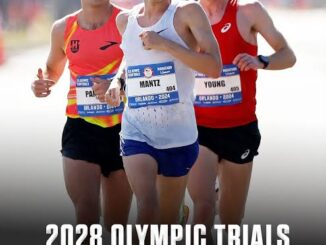
Michael Johnson Blames Investor Exit for Grand Slam Track’s ‘Major, Major Cash Flow Issue’
Track and field legend Michael Johnson has broken his silence on the financial crisis facing his ambitious new league, Grand Slam Track, revealing that the sudden withdrawal of a key investor led to what he described as a “major, major cash flow issue” that ultimately derailed the debut season.
In an interview this week, Johnson admitted that the league’s funding model was heavily dependent on investor backing. Although Grand Slam Track had secured approximately $30 million in financial commitments to support its four-meet global circuit, one major investor pulled out midway through the season. The fallout triggered a funding shortfall that disrupted payments to athletes, vendors, and venues.
“We had the money on paper, but when that commitment fell through, we couldn’t meet our financial obligations at the pace we had planned,” Johnson explained. “It caused a major, major cash flow issue.”
The crisis forced Grand Slam Track to abruptly cancel its highly anticipated season finale in Los Angeles, which had been scheduled for June 28–29 at UCLA. Organizers cited projected losses of more than $2 million due to underwhelming ticket sales, insufficient broadcast revenue, and the high cost of the venue.
The cancellation left athletes and stakeholders in limbo. According to reports, approximately $10–13 million in prize and appearance fees remain unpaid from earlier meets in Jamaica, Miami, and Philadelphia. Some venue operators also reported outstanding balances—Miami’s Ansin Sports Complex, for instance, is still owed nearly $78,000.
Johnson acknowledged the financial strain but emphasized that all unpaid obligations would be met. “We’re not walking away from anyone,” he said. “We’re in contact with athlete representatives and vendors, and we’re working to resolve outstanding payments by the fall.”
The controversy has drawn the attention of World Athletics President Sebastian Coe, who expressed concern about the unpaid fees and suggested the matter could be referred to the Athletics Integrity Unit. “We support innovation and investment in our sport,” Coe said, “but that must come with transparency, professionalism, and accountability.”
Despite the challenges, Johnson remains optimistic about the league’s future. He described 2025 as a pilot year and said the setbacks are part of the learning curve in building a sustainable new sports property. He revealed that Grand Slam Track is already in discussions with new investors, sponsors, and host cities for a 2026 relaunch, with hopes of returning to Los Angeles under improved terms.
“We proved the model works,” Johnson insisted. “We saw great crowds in Philadelphia, strong athlete engagement, and clear fan interest. We just need to stabilize our financial foundation and come back stronger.”
For now, the Grand Slam Track saga remains a cautionary tale of ambition, risk, and the complexities of launching a high-profile sports league. Whether the project can recover and deliver on its bold promises remains to be seen.



Be the first to comment